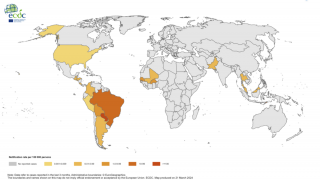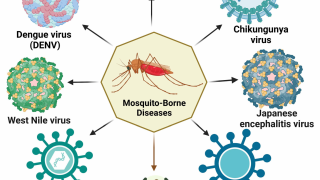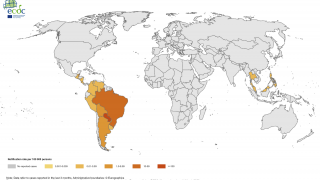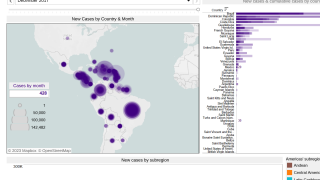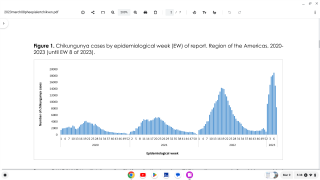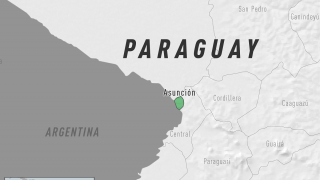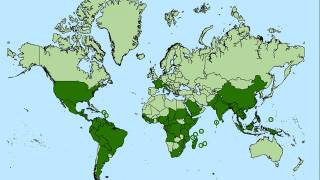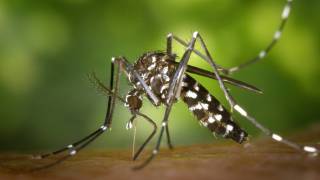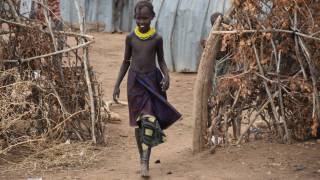Ethiopia Disease Outbreaks: Chikungunya, Cholera, Measles, Poliovirus
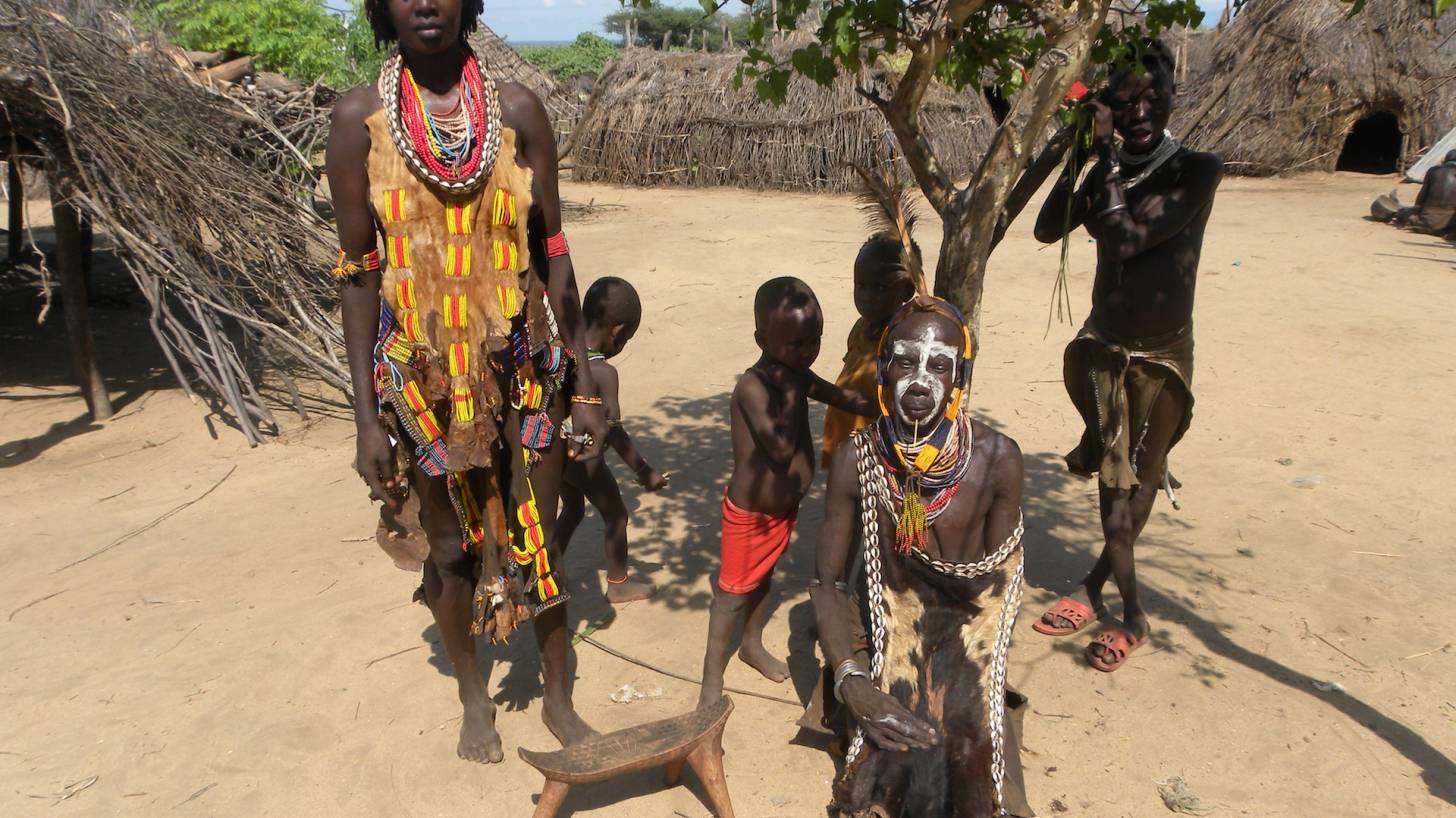
The eastern African country of the Federal Democratic Republic of Ethiopia is confronted with several disease outbreaks in 2019.
According to the World Health Organization (WHO) and other reports on September 4, 2019, Ethiopia has confirmed expanding Chikungunya, Cholera, Measles, and Poliovirus health risks.
These disease outbreaks are impacting the daily lives of Ethiopia’s 110 million residents and it’s expanding tourism industry, which hosted over 800,000 international visitors in 2018.
The following disease updates were available:
Chikungunya
- On August 31, 2019, the Ethiopia Public Health Institute (EPHI) disclosed 15,192 Ethiopians had been infected with Chikungunya during 2019.
- The EPHI said ‘although Ethiopia has conducted an extensive anti-Chikungunya spray campaign in the disease's epicenter, the eastern city of Dire Dawa, there was still a spike in the number of Chikungunya sufferers.
- Chikungunya is a viral disease transmitted to humans by infected mosquitoes. It causes fever but is rarely fatal, and symptoms last for a few days.
- The institute is currently undertaking house to house spray campaigns, societal awareness campaign and free medical tests in Chikungunya-affected areas of Ethiopia.
Cholera
- As of August 18, 2019, a total of 1,097 suspected Cholera cases, including 11 deaths, have been reported from 8 Ethiopia regions.
- There are active outbreaks in Oromia and Harari, as well as sporadic cases from Addis Ababa and Tigray.
- No cholera cases were reported from the commercial farms of Tigray and Amhara during this planting season. However, the possibility of outbreaks cannot be excluded because there was no report of a major improvement of the WaSH situation in these farms.
Measles
- Suspected measles cases totaling 7,951 were reported from 4 regions during 2019; Amhara (703), Afar (548), Oromia (4,360) and Somali (2,288).
- More than 72 percent of the measles cases had never received vaccination indicating the need to improve routine immunization.
- New data estimates that by the end of 2019, about 3.5 million Ethiopian children will be susceptible to the measles virus, mainly because of the failure to achieve the ‘herd-immunity’ necessary to interrupt transmission.
Polio
- An outbreak of polio has been reported in Ethiopia by the US Centers for Disease Control and Prevention (CDC) on August 21, 2019.
- This polio outbreak is caused by vaccine-derived poliovirus (VDPV), a sign of low oral polio vaccine coverage in the country.
- Since detection of the cVDPVs in the Horn of Africa in 2018, Ethiopia had declared this outbreak – together with the Ministries of Health of Kenya and Somalia – to be a regional public health emergency and has been participating in regional outbreak response.
- There is 1 reported case of cVDPV2 in Ethiopia with onset on 20 May 2019.
- Somalia, a neighboring country, has reported a total of 15 cVDPV cases since the beginning of the polio outbreaks in Africa.
To alert international travelers before visiting Ethiopia, on August 20, 2019, the CDC updated its travel vaccine recommendation:
- Routine vaccines, which include the diphtheria-tetanus-pertussis, varicella, and the annual influenza vaccinations.
- Cholera
- Polio
- Yellow Fever
- Hepatitis A
- Typhoid
- Measles
Furthermore, on August 21, 2019, the US Department of State expanded its Level 2 Travel Advisory for the Federal Democratic Republic of Ethiopia to include Level 3 and 4 warnings. For more information, please see the Travel Advisory.
For anyone departing from the USA, pre-departure vaccination services, related travel medications, and counseling appointments can be scheduled with a local pharmacy by visiting Vax-Before-Travel.
Vaccines, like any medicine, can have side effects. You are encouraged to report vaccine side effects to the CDC.
Published by Vax Before Travel
Our Trust Standards: Medical Advisory Committee


